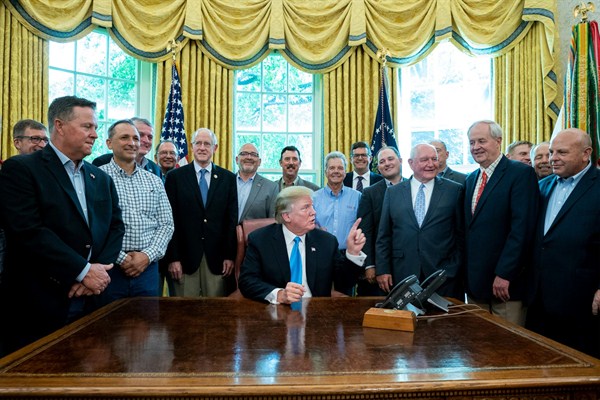President Donald Trump’s policies to “make America great again” often reflect a fondness for an earlier era that was not so great for everyone. Some of his judicial nominees have declined to affirm that the Supreme Court’s ruling in Brown v. Board of Education, which struck down segregation in public schools, is the settled law of the land. Trump’s immigration policies hark back to a time when there were national quotas that favored some ethnic groups over others.
Recent trade developments also suggest a yearning for the golden days of yesteryear. The 1950s are widely remembered as a time of strong income growth and low unemployment, but primarily for white men. International trade played a much less important role in the economy, and the U.S. was globally dominant—but that was mainly because the rest of the world was still recovering from the devastation of World War II.
But Trump seems to think it is possible to restore the economic structure from that time, and perhaps to recycle some discarded policies. Take the White House’s May 17th announcement that automobile imports pose a national security threat by weakening American-owned automobile companies and that higher tariffs might be necessary to protect them. The presidential proclamation completely ignores the degree to which globalization now defines the automobile sector.

